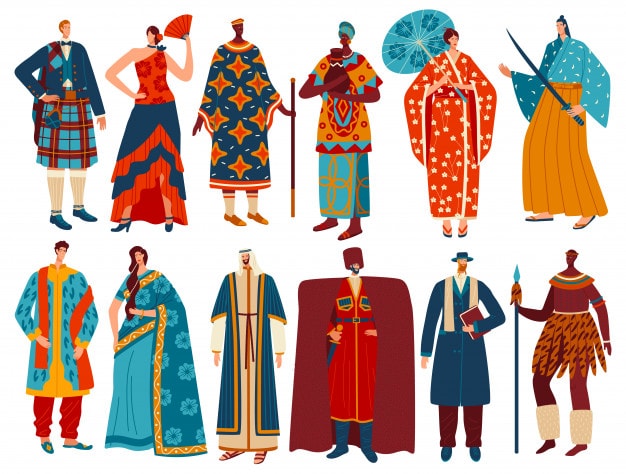Borders, distances, or cultures no longer confine contemporary businesses, organizations, and governments. They regularly deal in a global or multicultural scenario. Accordingly, globalization has implied a significant change in the ways we interact with other cultures and with each other. However, while working in a multicultural domain, intercultural communication is inevitable for result-driven interactions.
In today’s time, comprising diversity in the working environment is an unavoidable truth.
The likelihood of workforce, customers, and clients originating from various social backgrounds and cultural foundations is an all-time high.
How a company communicates conglomerating all the aspects of social and international demographics is the deciding factor behind optimized reach and global acceptance. Intercultural communication helps in ensuring all such features in an organization.
Table of Contents
What is Intercultural Communication?
Intercultural communication refers to the communication and cross cultural interactions that is carried out between two or more different cultures.
Acquiring intercultural communication skills has become the top priority in the modern-day business. When the businesses cross the cultural boundaries of religion, society, ethnicity, caste, etc. then the requirement for meaningful intercultural communication arises.
Globalization has given a boost to the intercultural environment in the business these days. An organization containing individuals from a different religion, caste, ethnicity, etc. require great intercultural sensitivity and communication skill among their employees. Knowledge of different languages is not the only requirement to hold excellent intercultural communication skills.
Let’s delve in deeper and understand the concept of intercultural communication broadly but first let’s understand its importance in modern-day businesses –
Importance of Meaningful Intercultural Communication
The power of communication can never be denied for the proper functioning of any organization of any size. When there is a blend of culture among the employees of any organization, the role of communication gets vital. It’s not just about establishing a language bond among the employees but an emotional bond among them for a great atmosphere.
An organization holding excellent intercultural communication will be able to understand its employees well, their issues, their expectations, and so on. People often misinterpret communication as the transmission of information; transmission is only useful if it is meaningful. To keep it simple, understand it this way – the transmission of information is useful if it is interpreted in a way to get some significance.
When the two people belonging to different cultures transmit the information, it becomes essential that the stimulator’s intention and respondent’s interpretation are identical. Excellent intercultural communication is the only hope for this condition to happen.
Two people from two different cultures share not only different cultural barriers language interests but also their lifestyles different – hence it becomes essential for the organizations to understand the actual meaning of excellent intercultural communication and how to put it effectively.
Let’s understand cultural differences and the bond between culture and communication to get a broader meaning of intercultural communication –
Culture and Communication Bound Together
To understand intercultural communication well, it is essential to understand the two terms (intercultural competence and cross cultural of differences) separately and then understand the bond between the two.
What defines cultural differences? Culture in simple words is the way of living. Culture is how society coordinates and acts.
Some institutions define this way of living like religion, caste, politics, ethics, and so on. People belonging to social groups with different demography often share different cultural beliefs. One major thing that we must note here – these groups of people may or may not share different language interests. They don’t have to speak a different language.
What’s so special about communication then?
Communication is not just the transfer of information from one to another.
It’s about creating a mutual meaning of that transmitted information. A person holding a thought share it to the other person –excellent verbal communication will happen if the two persons interpret the information in the same manner.
Now we know the meaning of the define intercultural communication with two words– communications, meaning the mutual interactions for sharing information, whereas culture means how a group lives and performs actions. Intercultural communication is the creation of mutual meaning across different cultures. Intercultural communication is about making sense of people from different cultures through healthy communication.
Meanwhile, it should be denied that there remain the chances of the clash when people from different cultures communicate. To reduce any possible clash while intercultural communication takes place, it is essential to follow strategies of healthy intercultural communication. Let’s take a look at a few significant secrets of excellent intercultural communication –
Secrets for Great Intercultural Communication Skills
1. Show Respect
This is no rocket science – when people from different cultural beliefs communicate, they must respect each other’s beliefs. For a healthy business to communicate, respect is among the vital factors to be emphasized upon.
During intercultural communication, one may act frankly and interact indirect language while others may find this offensive; respect should never be compromised.
2. Healthy Relationship
What is essential for healthy communication? A good relationship, a great mutual understanding. It is more important to respond well than sending a message. If the relationship between the employees is healthy, then healthy communication will follow.
Organizations must promote mutual understanding between multiple cultures in the organization to facilitate communication.
3. Ensure Simplicity
We are talking about people from different cultures, not from different planet or specie. Don’t overdo with it and make them feel uncomfortable. While communicating with them, you should make sure they comprehend you well; for this don’t complicate things. Send a clear message and be open to a clear response.
4. Learn to quit
You may not always find yourself comfortable with the cultural talks. If you feel that you are left out in the conversation, you can always quit. It is time to self-evaluate and do more research to be comfortable in such conversations. Talking anything (nonsense) is never a good idea in the professional world.
5. Live the moment
This is the opportunity where you can explore different cultural norms and beliefs and get to know about different cultures; enjoy the moment. Your attitude can define the entire quality of the communication. Be open to learning new things and don’t put yourself in the uncomfortable position every time rather live this moment to full joy.
These were some essential hints that ought to be followed for acceptable and significant intercultural communication.
For being a successful intercultural communicator, you need to make a well-cognizant attempt to stay away from the communication dissonance. That is why, before interacting with someone of a different culture, you should ask below-given questions to yourself, so your prejudices or cultural biases do not hamper or debase the communication process-
Questions you Should Ask to Yourself Before Starting Intercultural Communication
- Do I have any preconceived notions about this individual because of their social identity attributes?
- Do I have neutral, positive, or negative notions about that person?
- What are the sources of your preconceived notions or prejudices?
- Will my previously established notions encourage or obstruct communication?
- Am I open to finding out about this individual and myself during the interaction?
- Am I ready to be changed because of this interaction?
- What communication tools I can use for channelizing genuine intercultural communication?
With the answers to these questions, you will alleviate the process of moving ahead with intercultural communication. Let us now understand how globalization is based upon such communication practices.
Here is a video by Marketing91 on intercultural communication competence…
Practical Examples of Intercultural Communication Skills
In the digital age, it’s easy to think that we can communicate with people from all around the world without any effort. But in reality, it takes a lot of hard work and practice to be able to communicate effectively with people from different cultures.
Here are some practical examples of intercultural understanding and effective intercultural communication:
1) Ask questions when you don’t understand something someone says. This shows them that they’ve been heard and helps you learn more about their culture.
2) Speak slowly if someone is speaking more quickly than usual—it’s a sign of respect!
3) Pay attention to how people respond to your questions or comments; if someone seems offended by what you’re saying, apologize right away!
4) Don’t assume that everyone values the same things as you do—they might not understand jokes or sarcasm unless you explain them first.
5) Use gestures and facial expressions to show people that you’re listening, even if they’re not speaking English.
Intercultural Communication and Globalization
When it comes to globalized businesses, intercultural communication channelizes how individuals interact (verbally and non-verbally), oversee, greet, cooperate, negotiate, approach deadline times, meet, form connections, and so on.
These themes are turning out to be considerably more applicable now on two different fronts-
-
For those organizations that have a mix of cultures who work together
-
For organizations needing to exchange effectively abroad
In these two fronts, if people are unconscious of how best to get along and do some businesses, it can and prompts terrible performance and lost deals.
More noteworthy inclusion of intercultural communication ensures a higher likelihood of accomplishing business objectives.
All in all, intercultural communication today implies getting a competitive edge at the time when businesses are exceptionally competitive and evolving. Individuals need to take care of business and hit the nail for the first time.
Regardless of whether a business is searching for another client, giving a presentation, or arranging an agreement, intercultural communication plays the most crucial role. It empowers your capacity to communicate successfully with people of different cultures.
For those keen on learning more about intercultural communication, few books can be of great use. Let us have a look upon some of those books here and now-
Books you can use to Learn Intercultural Communication
- Mind Your Manners (Managing Business Cultures in Europe) – By John Mole, Nicholas Brealey Publishing
- Riding The Waves of Culture: Understanding Cultural Diversity in Global Business – By Fons Trompenaars, Nicholas Brealey Publishing
- Cultures and Organizations: Software of the Mind. Intercultural Cooperation and Its Importance for Survival – By Geert Hofstede
- Building Cross-Culture Competence – By Charles Hampden-Turner & Fons Trompenaars
- Beyond Culture – By Edward T. Hall
Final Thoughts about Intercultural Communication!
Good communication among the employees defines a healthy business when the employees share different cultural beliefs, the importance of communication doubles.
To ensure the productivity of the employees, organizations should take the responsibility to establish a healthy atmosphere where meaningful intercultural communication is emphasized upon. Being an employee, you should always greet others with humbleness and be open to learning new things.
As businesses are going global day by day, it is essential to understand the essence of healthy intercultural communication; hence we should promote it.
Do you have some instances where you found intercultural communication highly significant?
Liked this post? Check out the complete series on Communication




